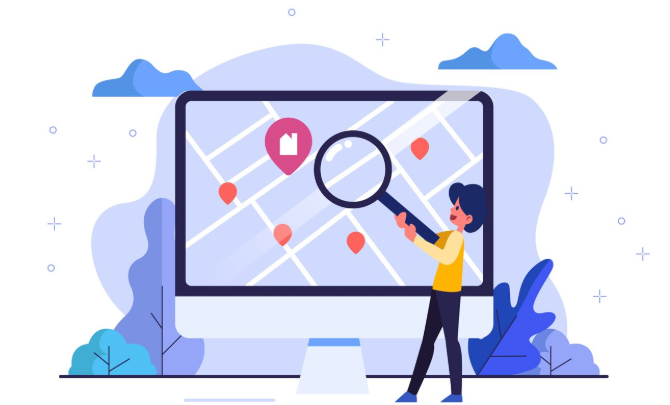Want your website to be the first thing people see on Google?
I’ve spent 5 years figuring out the best ways to make that happen. I’ve tried and tested lots of strategies to find out what really works.
Now, I’m excited to share with you seven top tips that can really make a difference.
These tips are all about helping your site stand out and climb up those search rankings. Let’s dive in and make your website a star!
Top 7 SEO Tips for [Year]: A Marketer’s Guide
Tip 1: Prioritize User Experience (UX)
Google really cares about how easy and enjoyable it is to use your website. This means your site should load quickly, work well on phones, and be easy to get around.

By making your website better in these ways, people are more likely to stay and look around, which tells Google that your site is a good place to be.
This can help your website show up higher in search results. Making sure visitors have a good time on your site is super important for being noticed online.
Tip 2: Focus on Experience, Expertise, Authority, and Trustworthiness (E-E-A-T)
Google really cares about making sure the information on your site is from people who know what they’re talking about, can be trusted, and are known for being good at what they do.

This is super important for topics that can really affect people’s lives or money. You can make your website look better to Google by writing great content, using information from sources everyone knows is good, and getting lots of good reviews.
Also, if people who are already known for their expertise help out on your site, it makes your site seem even more trustworthy and reliable.
Tip 3: AI and Automation: Balancing Technology with the Human Touch
Using AI and machine learning in SEO gives you an advantage because these technologies can do a lot to improve your website. You can find the best keywords, or then recheck on SEMrush & Aherefs the volume of that keyword to make sure your content is as good as it can be, and even predict what topics will be popular in the future.
There are tools powered by AI that can help you create content that’s really relevant and high-quality. But, even with all this technology, it’s still important to have a human touch. People make sure the content feels right and connects with readers in a way that machines can’t.
By combining AI’s efficiency and humans’ understanding, you can create content that not only ranks well in search engines but also truly engages your audience.
Tip 4: Boosting SEO Through Strategic Internal Linking
A good internal linking setup makes it easier for search engines to find and understand all the pages on your website. It’s like giving them a map that shows how everything is connected.
This can help spread the importance (or “authority”) of your main pages to other pages on your site, helping those too to rank better in search results.

When you link pages inside your site, use clear and relevant words for the links (this is called “anchor text”) so both search engines and people know what the link is about.
Doing this helps search engines see your site as organized and full of useful information. It’s a straightforward but powerful way to make your website more noticeable and valuable in the eyes of search engines.
Tip 5: Keeping Up with Google: The Importance of Adapting to SEO Algorithm Updates
Google’s algorithms, the complex formulas it uses to rank web pages, are always changing. These updates can significantly impact where your site appears in search results. That’s why it’s vital to keep up with these changes.
By staying informed about the latest developments, you can tweak your SEO tactics to ensure your site remains visible and ranks well. Following reliable SEO news sources and Google’s own announcements can help you stay on top of these updates.
When Google releases a new update, it’s often aimed at improving how users find information, making high-quality and relevant content more important than ever.
Adapting to these changes promptly can give you an edge over competitors who might be slower to react. In essence, an up-to-date SEO strategy that aligns with Google’s latest guidelines is essential for maintaining and improving your site’s search engine performance.
Tip 6: Structured Data & Schema Markup
Structured data, using something called Schema.org markup, is like giving search engines a map of your website. It helps them understand what your content is about.
For example, if you write reviews, sell products, or have FAQs, this markup highlights that information. When search engines understand your content better, they can show your pages in search results in a more appealing way.

This could mean showing star ratings for reviews, prices for products, or answers for FAQs right in the search results, before someone even clicks on your website.
This not only makes your website stand out in the search results but can also attract more people who are interested in exactly what you offer. It’s a smart way to get more people to visit your site.
Tip 7: Quality Over Quantity: The New Rule for Backlinks
Backlinks are like votes for your website, but not all votes are relevant. Nowadays, it’s more important to get a few high-quality votes from websites that are respected and relevant to your topic than to have lots of votes from sites that don’t matter much.
This is because search engines, like Google, pay more attention to links from authoritative and relevant sites. These links tell search engines that your site is trustworthy and valuable, which can boost your position in search results.
To get such links, focus on making great content that others in your field want to share and on building good relationships with other websites. This approach is more effective for improving your website’s search engine ranking and attracting the right audience.
Additional Tip: Mastering Mobile-First Indexing for Better SEO
Google now mainly uses the mobile version of websites to decide how high they should appear in search results. This means your website needs to work well and look good on mobile devices.
Make sure your site loads quickly on phones and tablets, has all the same content as on a desktop, and is easy to use on a small screen. Since more people use the internet on their phones than on computers, making your website mobile-friendly is essential.
It’s not just an extra feature; it’s a must-do to ensure your site ranks well in search results.
🔥Final Says
Boosting your website’s Google ranking in [Year] is straightforward. Make your site fast, mobile-friendly, and easy to navigate to enhance the user experience.
Emphasize quality content that showcases your expertise, authority, and trustworthiness. Utilize AI for efficiency while maintaining a personal touch. Implement strategic internal linking and stay updated with Google’s algorithm changes.
Use Schema.org markup for clarity to search engines, focus on obtaining high-quality backlinks, and ensure your site is optimized for mobile-first indexing.
These steps will help your website stand out, attract more visitors, and climb the search rankings.
